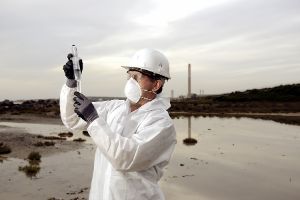
Addressing water quality concerns is a crucial aspect of maintaining public health and environmental integrity, often requiring the expertise of environmental consultants. The focus of environmental consulting services revolves around identifying, assessing, and mitigating water-related issues to ensure compliance with various quality standards.
Understanding The Role Of Environmental Consultants In Water Quality
Environmental consultants are tasked with testing water quality, as well as advising businesses and governing bodies on the best strategies to manage and improve water quality. These professionals examine existing environmental conditions and develop plans to remedy or prevent potential issues, leveraging a variety of assessments and testing methods. Their objective is to ensure water systems meet regulatory standards and protect both human and ecological health.
The Importance Of Water Quality
Water quality is a major indicator of environmental health, influencing the well-being of humans, wildlife, and ecosystems. High water quality ensures safe drinking water and supports recreational activities, fishing, and agriculture.
Securing high-quality water is particularly vital given its numerous neighboring water bodies and the potential for pollution from urban development, industrial activities, and natural events.
Key Water Quality Concerns Addressed By Consultants
Environmental consultants focus on a range of water quality concerns that can affect public water systems and natural water bodies.
- Contamination from pathogens, nutrients, or heavy metals.
- Erosion and sedimentation affecting aquatic habitats.
- Industrial pollutants entering waterways.
- Algal blooms caused by nutrient runoff.
- Changes in physical factors like temperature and turbidity.
Water Quality Assessments & Testing
An environmental water quality assessment is a systematic process of evaluating water characteristics. Consultants employ various water quality testing methods to assess parameters such as pH, dissolved oxygen, turbidity, and the presence of chemicals or pathogens. Testing can be both laboratory-based and field-based, depending on the specific requirements and scope of the project.
Water Pollution Mitigation Strategies
Mitigating water pollution involves a combination of immediate action and long-term management strategies. Environmental consultants employ several approaches to reduce pollutants and improve water quality.
- Implementing best management practices (BMPs) like buffer strips and constructed wetlands.
- Remediation technologies such as bioremediation and chemical treatment.
- Source control measures to prevent pollution at its origin.
- Public education campaigns to reduce non-point source pollution.
Ensuring Compliance With Quality Standards
Compliance with water quality standards such as those set by the Environmental Protection Agency (EPA) is a top priority for consultants.
- Regular monitoring and reporting of water quality data.
- Adhering to federal, state, and local regulations.
- Conducting environmental impact assessments for new development projects.
- Preparing comprehensive documentation for regulatory audits.
Environmental Impact Of Poor Water Quality
Failing to maintain good water quality can have significant environmental impacts, including:
- Harm to aquatic life and ecosystems.
- Contaminated drinking water supplies.
- Increased risk of waterborne illnesses.
- Loss of biodiversity in aquatic environments.
- Economic impacts on industries dependent on clean water.
Regulatory Frameworks & Quality Standards
Water quality is governed by a complex regulatory framework, designed to protect public health and the environment. The Environmental Protection Agency (EPA) plays a significant role in setting industry standards.
Environmental consultants must navigate these regulations and ensure that clients remain compliant with all relevant laws and guidelines.
Engaging With The Community For Better Water Quality
Part of enhancing water quality involves engaging with the community and raising awareness about sustainable practices. Environmental consultants often collaborate with local organizations and educational institutions to foster a culture of environmental stewardship.
By involving the community in water quality initiatives, consultants help build a shared understanding and commitment to maintaining clean water sources.
The Future Of Water Quality Management
Advancements in technology and a growing awareness of environmental issues are shaping the future of water quality management. Tools like remote sensing, artificial intelligence, and machine learning are offering new ways to predict and address water quality issues. Environmental consultants are at the forefront of adopting these innovations to improve their services and the outcomes of their projects.
Partner With Experts For Comprehensive Water Solutions
For those in Seattle, ensuring high water quality is not just a necessity, but a responsibility shared by all. By partnering with professionals like M3 Environmental LLC, you can access expert guidance and solutions tailored to your specific water quality concerns.
Don’t leave the quality of your water to chance — work with expert environmental consultants to safeguard Seattle’s precious water resources today.





